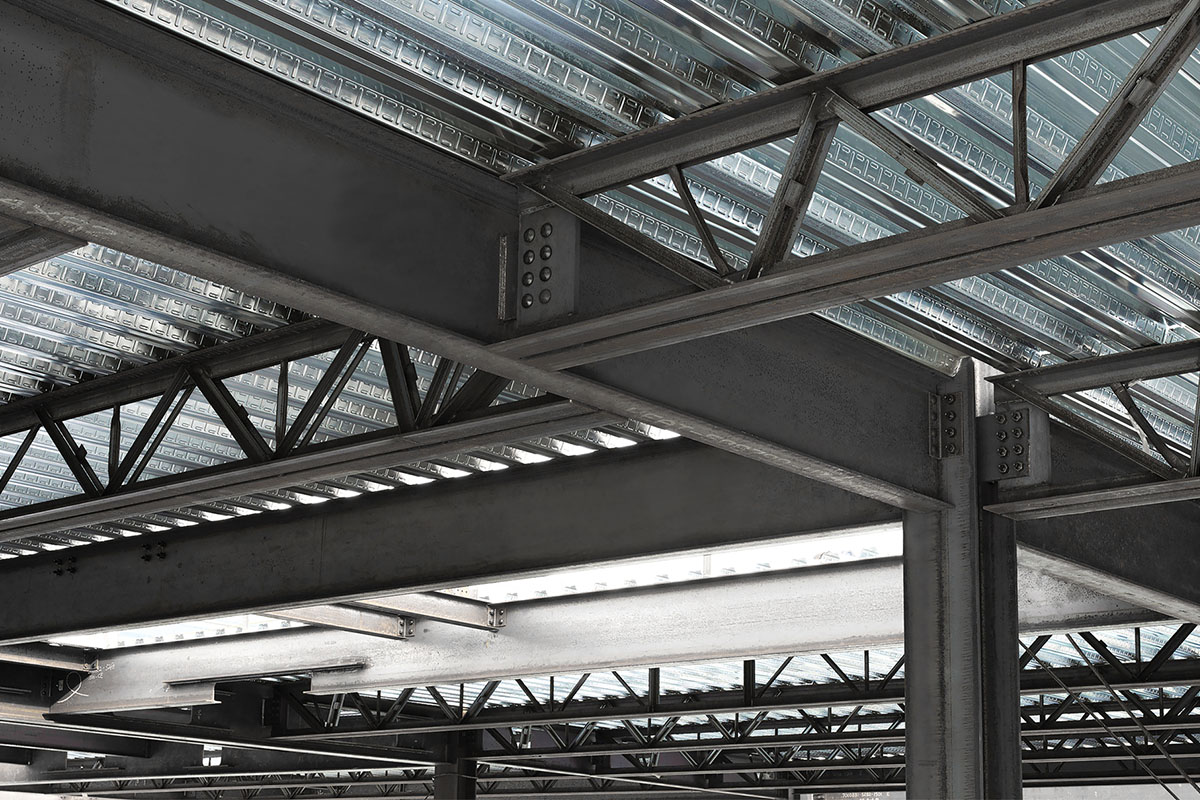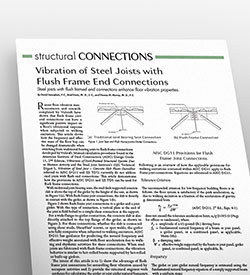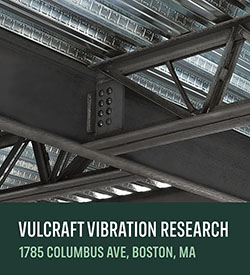MINIMAL VIBRATION. SUPERIOR COMFORT.
Vulcraft addresses vibration concerns with advanced framing options such as Flush Frame Connections, which are specifically engineered to enhance floor performance and occupant comfort. By integrating open web steel joists with flush frames, Vulcraft offers a system that minimizes vibration while maintaining flexibility for mechanical and electrical routing, making it ideal for sensitive spaces like offices, schools, and laboratories.
ENHANCED FLOOR VIBRATION CONTROL
FLUSH FRAME CONNECTIONS
Vulcraft’s Flush Frame Connections are engineered to significantly mitigate floor vibration, enhancing occupant comfort and safety. By placing the joist’s top chord flush with the girder’s top flange, these connections combine the strength of a wide flange beam with the lightweight efficiency of open web joists. Flush frames also simplify MEP installation, accelerate deck installation, and may reduce floor-to-floor heights, making them ideal for sensitive environments where vibration control is critical.

LEARN MORE ABOUT OUR CUSTOM ENGINEERED SOLUTIONS
LEARN MORE ABOUT OUR CUSTOM ENGINEERED SOLUTIONS
MORE RESOURCES
AVAILABLE DESIGN TOOLS
VIBRATION ANALYSIS TOOL
This tool analyzes floor system for Vibration based on Walking criteria using SJI TD5 and AISC DG11, and is for Joist floor with several Girder options.
JOIST WIZARD
Select the most economic joist depth based on your inputted special loads including uniform and non-uniform distributed, concentrated, axial, and end moments. Outputs include joist self-weight, top chord width, seat depth, and allowable maximum duct size.
GIRDER WIZARD
Select the most economic joist girder depth based on your inputted point loads – either equally distributed or with special spacing and magnitude – as well as distributed loads, axial, and end moments. Outputs include girder self-weight, moment of inertia, top chord width, and seat depth.
VIBRATION RESEARCH

Structure Magazine (Nov. 2023): Vibration of Steel Joists with Flush Frame End Connections

Case Study - Composite Joists with Flush Framed Connections
